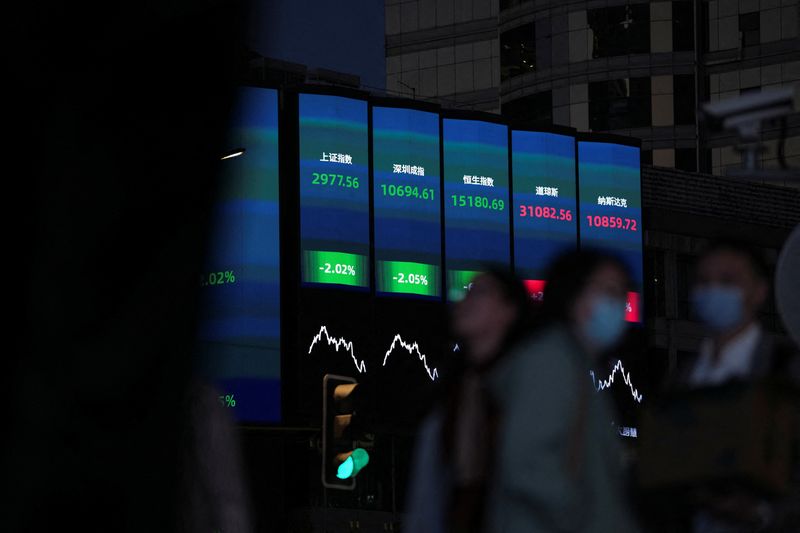By Summer Zhen
HONG KONG (Reuters) – After seeing record outflows in 2022, Asia-focused hedge funds posted a 5.3% gain in a January rally to mark their best monthly performance in years, bolstered mainly by a rebound in Chinese share prices, Goldman Sachs said in a note.
The funds’ performance in January, the strongest in Goldman Sachs records going back to 2016, comes as China’s economy reopens after years of COVID-19 curbs and U.S. interest rates appear to be close to a peak.
MSCI’s Asia Pacific stocks index soared 7.8% last month, outperforming the rest of the world.
For hedge funds, the best gains in January had come from a strategy of taking long and short positions in Chinese shares based on company fundamentals, Goldman Sachs said. The strategy returned 7.7% in January. Taking the same approach to Japanese shares yielded 2.6%.
A separate gauge by Eurekahedge also showed Asian hedge funds rallied for the third consecutive month in January, with a 4.8% rise.
Asia-focused hedge funds dropped an average 8% last year, with a net outflow of $7.7 billion from Asia ex-Japan funds, according to Eurekahedge data from With Intelligence. Including Japan, the outflow was $8.5 billion.
Don Steinbrugge, founder and chief executive of Agecroft Partners, a hedge fund consulting firm based in New York, said Asia-focused hedge funds were significantly under-represented in most global investors’ portfolios. The under exposure had increased over the past years as investors had shifted assets out of Asia and into North America and Europe, Steinbrugge said.
Investors’ interest in Asia and China this year should increase due to a weakening of the U.S. dollar and more attractive valuations of regional stocks relative to the U.S. markets, he said.
“European and U.S. investors view China’s change in COVID policy as positive,” he said, referring to the abandonment of pandemic controls in late 2022. But “some investors want to wait and see a stabilization of the real estate market.”
The Asia macro strategy – betting on macroeconomic and political trends – returned 6%, while Asia equity long/short gained 5% and Asia credit long/short gained 4%. The Asia multi-strategy lost 1% in January, Feb. 14 Eurekahedge data shows.
Steinbrugge expects macro strategies that have a lower correlation to market, to continue to gain momentum based on their strong performance last year, while a significant amount of assets in the equity long/short strategies could move to Asia or China.
(Reporting by Summer Zhen; Editing by Vidya Ranganathan and Bradley Perrett)
